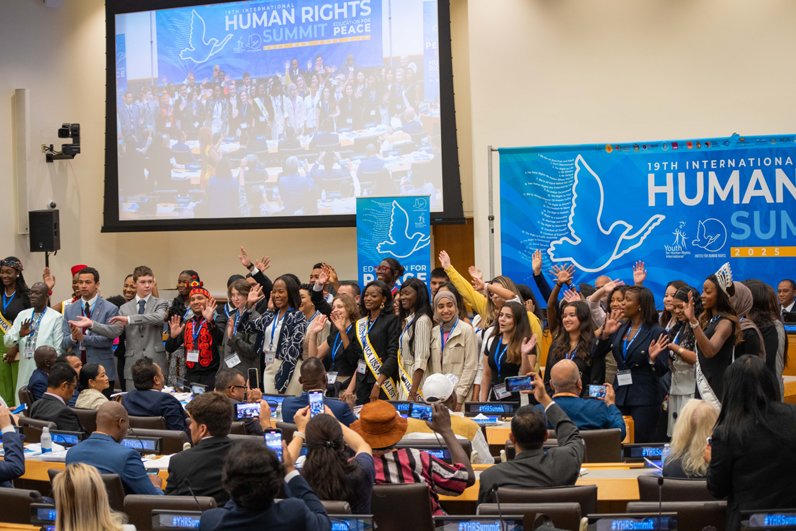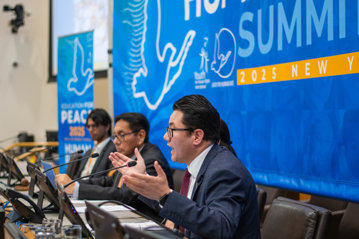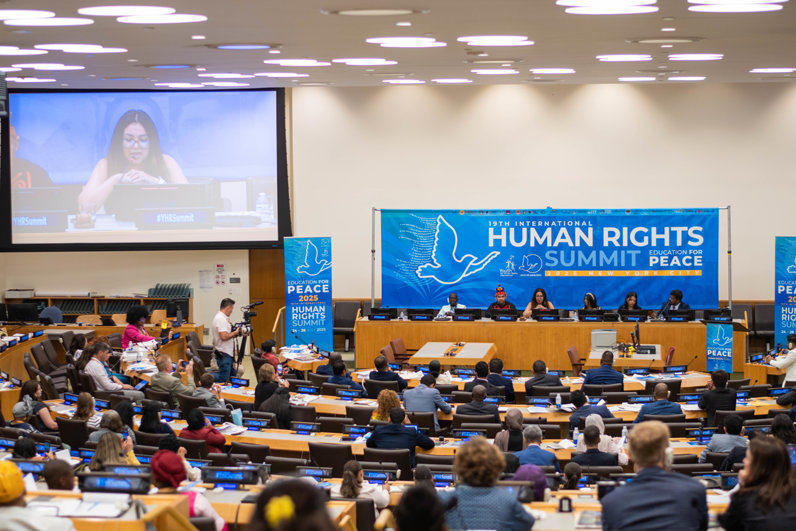Youth Take the Mic at the United Nations to Make Human Rights a Reality
The 19th International Human Rights Summit shows that human rights education is the engine driving human rights from paper into practice.

From the persecution of the Hazara minority in Afghanistan to children forced into war in Africa to the everyday discrimination in the USA, human rights abuses continue to scar the lives of millions. Determined to create change, youth delegates from 40 countries gathered at the United Nations in New York to make human rights a reality. The 19th International Human Rights Summit, organized by United for Human Rights (UHR) and its youth arm, Youth for Human Rights International (YHRI), and sponsored by the Permanent Mission of Timor-Leste to the United Nations, focused on the theme Education for Peace.
“Education plants the seeds of dialogue where conflict once grew.”
Over three days, young representatives united with veteran human rights advocates to confront global crises and reaffirm the principles enshrined in the 1948 Universal Declaration of Human Rights. From stirring keynote addresses by UN ambassadors to impassioned youth presentations and five cross-sector panel discussions, the summit spotlighted how education empowers individuals to enact change.
“Education plants the seeds of dialogue where conflict once grew,” said YHRI President Dr. Mary Shuttleworth, a lifelong educator who witnessed apartheid in South Africa. “Peace education transforms fear into understanding. Your passion, vision and courage will help inspire us all as we shape the future of human rights through education for peace.”

Youth delegates brought firsthand experience to the table, sharing initiatives addressing discrimination, human trafficking and local injustices. The 15-year-old youth delegate from Timor-Leste inspired the audience with a call to action: “As young people, we cannot be afraid. We must use our voices to break cycles of abuse, to promote education and respect, and to hold our leaders accountable.”
Panel discussions highlighted practical solutions, such as translating human rights ideals into public policy. The youth delegate from Mexico stressed the importance of education as a policy priority: “We must advocate for human rights with conviction and passion,” she said. “Let’s knock on schools’ doors, let’s join so we no longer share grim statistics… and let’s make human rights a reality.”
A 12-year-old delegate representing the United States added a fresh perspective on what engaging youth can accomplish: “Imagine if millions of kids all over the world learned about peace. Let’s educate every youth about peace and human rights because when we all understand peace, the world will change.”

The summit emphasized a clear message: human rights are not just abstract ideals. From founding school clubs to grassroots advocacy, youth demonstrated that education is the engine that drives human rights from paper into practice.
By giving young voices the platform to act, UHR, YHRI and their partners prove that the future of peace is not guaranteed—it is actively created, one educated, empowered individual at a time.
